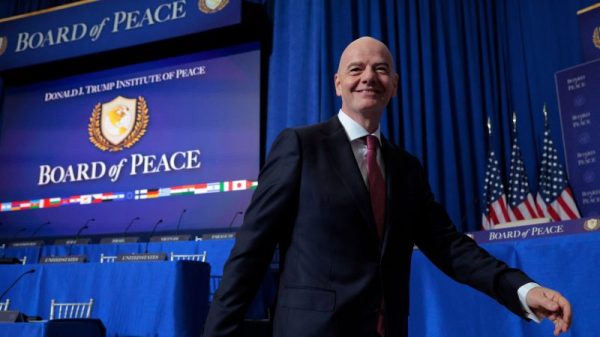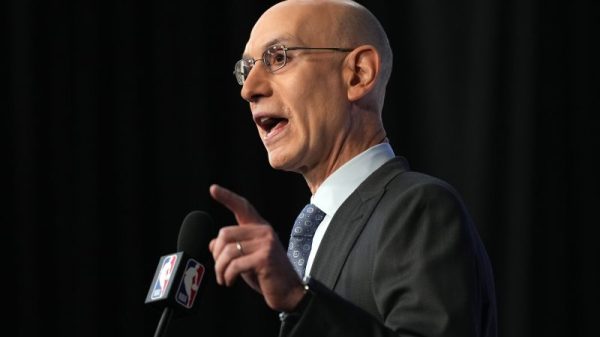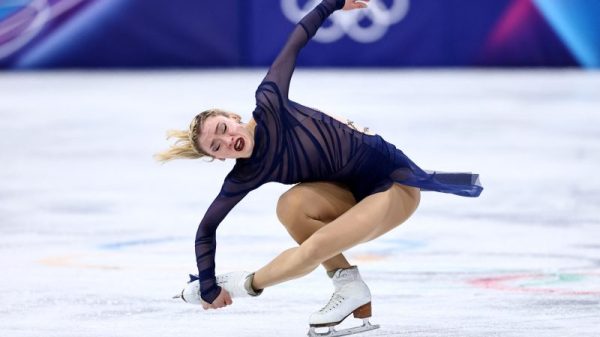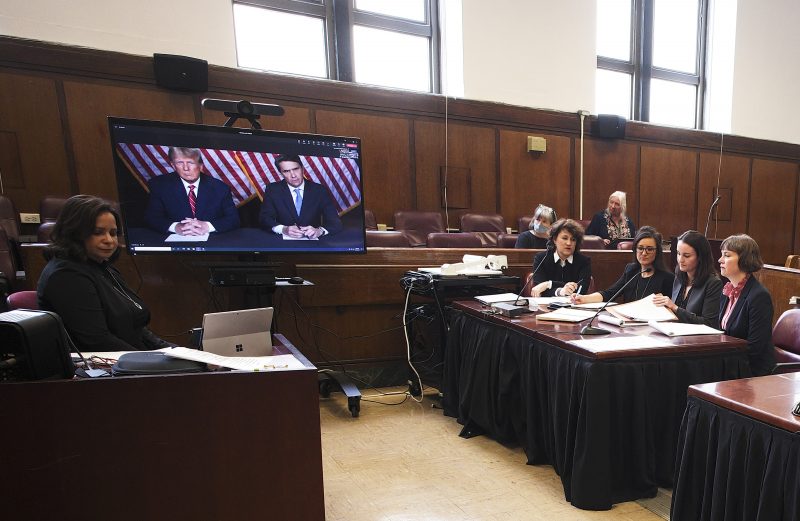NEW YORK — A judge Tuesday set a March 2024 trial date for Donald Trump and warned the former president that he could be found in contempt if he shared evidence provided to his lawyers in his criminal case on charges of falsifying business records.
Trump appeared on a video feed at a Manhattan courtroom from his Mar-a-Lago residence in Florida with his attorney Todd Blanche. New York Supreme Court Justice Juan Merchan told the parties not to make plans around and after the trial start date of March 25, 2024.
When that happened, Trump shook his head.
“All parties including Mr. Trump are directed to not engage or otherwise enter into any commitments personal or professional or otherwise,” Merchan said, reading from an email exchange with the attorneys that had already addressed a trial schedule.
The New York Trump indictment, explained
1/6
End of carousel
He also warned Trump that disclosing documents the defense obtains from the district attorney as part of pretrial discovery is strictly prohibited — limits that were imposed in recognition of Trump’s habit of making social media attacks against his detractors.
“Any violation of a court order or a violation of a court mandate could result in sanctions,’ Merchan said. “There’s a wide range of sanctions [but] they could include up to a finding of contempt, which is punishable.”
Blanche told Merchan that Trump, who lost to President Biden in 2020, was concerned the order could impede his right to free speech as he campaigns as a candidate in the 2024 presidential election. The trial is set during the Republican primary schedule, a few weeks after Super Tuesday.
Trump, whose microphone was muted at this point, appeared annoyed as he was put on notice of potential punishments.
After the hearing, on his social media platform Truth Social, Trump wrote that his First Amendment rights were violated by Merchan and accused the judge of engaging in election interference by setting the trial schedule mid-primary season.
Merchan has imposed a protective order on Trump and his defense team, barring them from publicly circulating — including on social media — evidence that is not already in the public domain.
The protective order is not a gag order. The order does not prohibit Trump from speaking about his case or discussing facts that have already been disclosed publicly in federal court documents, news reports and other forums.
Such orders are not uncommon. But in this case, prosecutors have expressed particular concern that Trump would try to intimidate witnesses by publicly posting information he gleans from the documents or that he would attempt to rally supporters to commit violence using information he obtained during the discovery process.
Shortly before he was indicted in March on 34 counts of falsifying business records, Trump warned on his Truth Social account of “potential death & destruction” if Manhattan District Attorney Alvin Bragg were to file charges. In a chilling message reminiscent of Trump’s comments before the Jan. 6, 2021, riot at the U.S. Capitol, the former president also called for protesters to “take our nation back.”
Both Bragg and Merchan have received an onslaught of threats related to the Trump case.
Merchan’s order also prohibits the defense attorneys from making copies of discovery for anyone outside of the legal team and bars Trump from seeing certain documents unless his lawyers are present.
Trump’s court appearance was his second since he was indicted in Manhattan state court in a case related to repayment of hush money given to an adult-film star during the 2016 presidential campaign. Trump, the first former president charged with a crime, was arraigned on those charges on April 4 and pleaded not guilty.
The next scheduled court appearance is Jan. 4 and in the coming months pre-trial motions will be filed.
Bragg’s case is one of several serious pending investigations against Trump. The Justice Department is evaluating whether he mishandled classified documents at Mar-a-Lago, his Florida home and private club, or obstructed efforts to retrieve such documents, as well as Trump’s role in efforts to overturn the 2020 election results and potential involvement in the events of Jan. 6.
Two weeks ago, a federal jury in Manhattan found Trump liable for battery and defamation in connection with an alleged mid-1990s sexual assault disclosed by author and advice columnist E. Jean Carroll. The jury in that case awarded Carroll $5 million and found that it was likely Trump sexually abused her in a Bergdorf Goodman dressing room after a chance encounter.
Trump’s criminal case and the various other pending probes could complicate his run for the GOP presidential nomination in 2024. He has been actively campaigning for months and has framed his legal troubles as a function of Democrats trying to keep him from returning to the White House.
The charges in the business-records case are related to Trump’s alleged misclassification of reimbursement payments to Michael Cohen, his former lawyer and fixer. Cohen paid adult-film actress Stormy Daniels $130,000 during the 2016 presidential campaign to keep her quiet about an alleged sexual encounter with Trump years earlier.
Bragg’s team has accused Trump of documenting the payments as legal fees when they should have been reported as a campaign expense.
Trump’s attorneys are likely to argue that the payments did not constitute a reportable expense and that state-level prosecutors cannot use federal campaign finance violations as a basis for turning a state court falsifying records charge into a felony.
In recent court filings, prosecutors have clashed with Trump attorneys over whether the defense is entitled to a detailed breakdown of the elements of each count that will be introduced at trial.



























